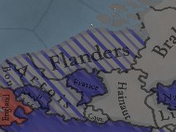Hello, and welcome to another Tinto Talks, the happy Wednesdays where we talk about Europa Universalis V!
Today, we will talk about another very impactful early-game situation: the Hundred Years’ War!
Historically, the war started when, in May 1337, Philip VI confiscated the Duchy of Aquitaine from Edward III of England, for the reason of breaching his obligations as a vassal, which was responded to by Edward III claiming the throne of France by the rights of his mother, Isabella of France - the situation was way more complicated than this, so let’s leave the historical events here.
In our game, a couple of months after the start of the game (so, in June 1337), this event will trigger to France:
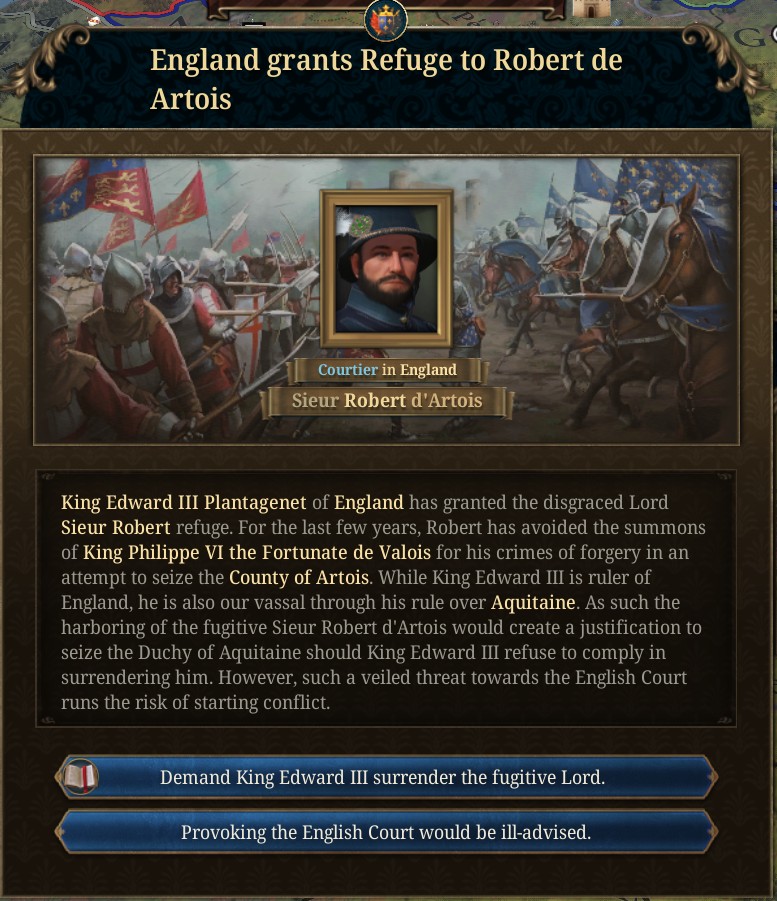
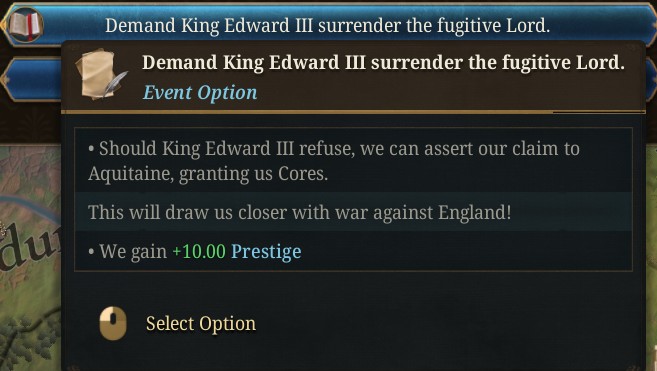
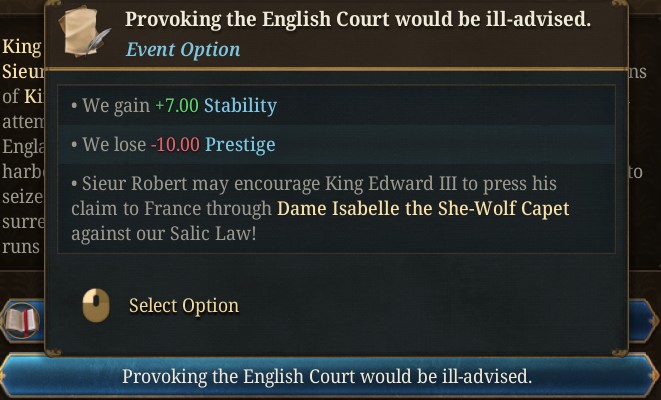
While this is the English point of view:
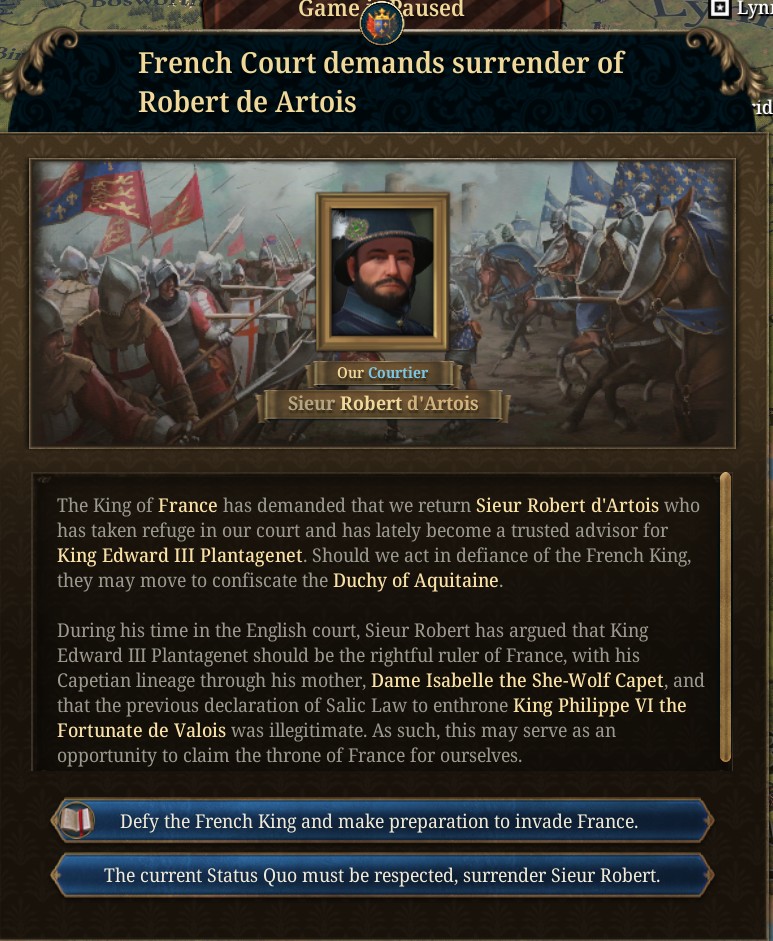
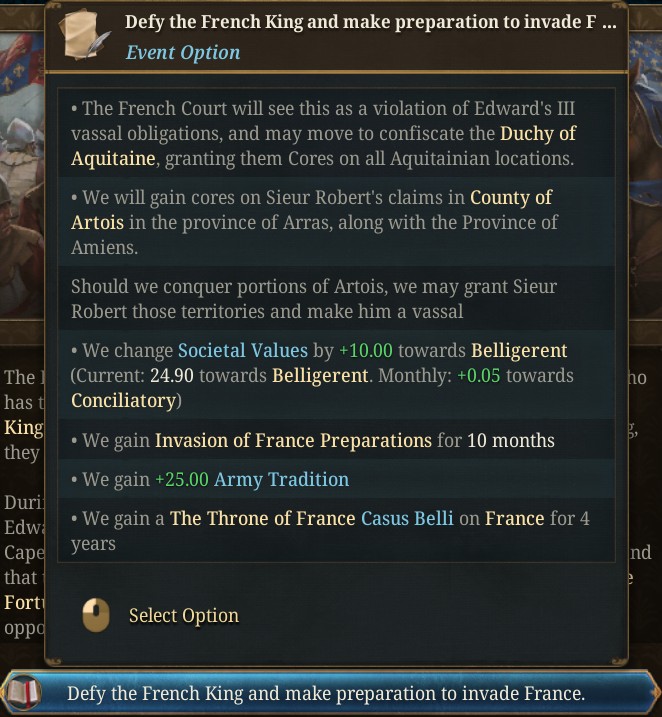
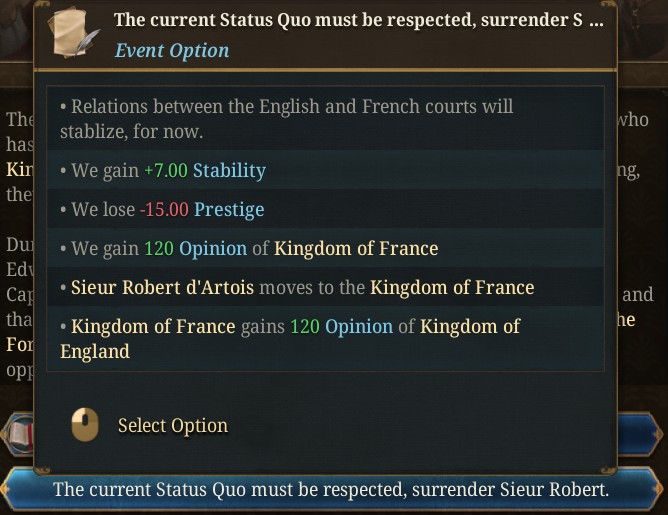
If the historical options are followed (which is set to always happen to AI countries), this will happen:
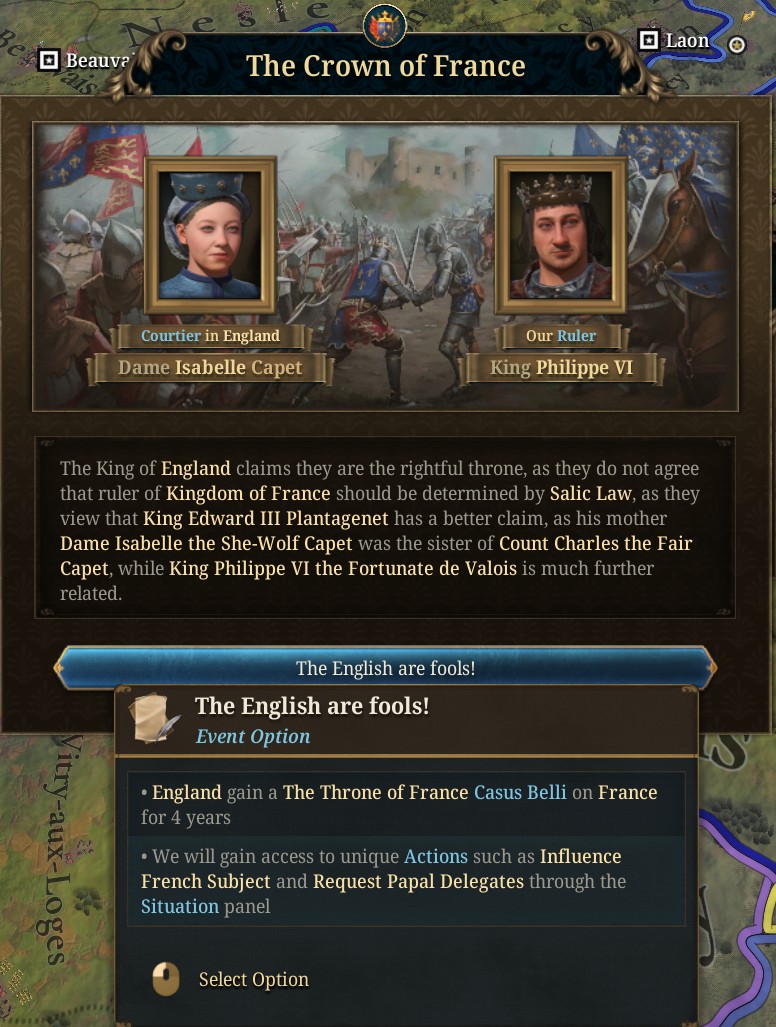
And it will also trigger the situation:

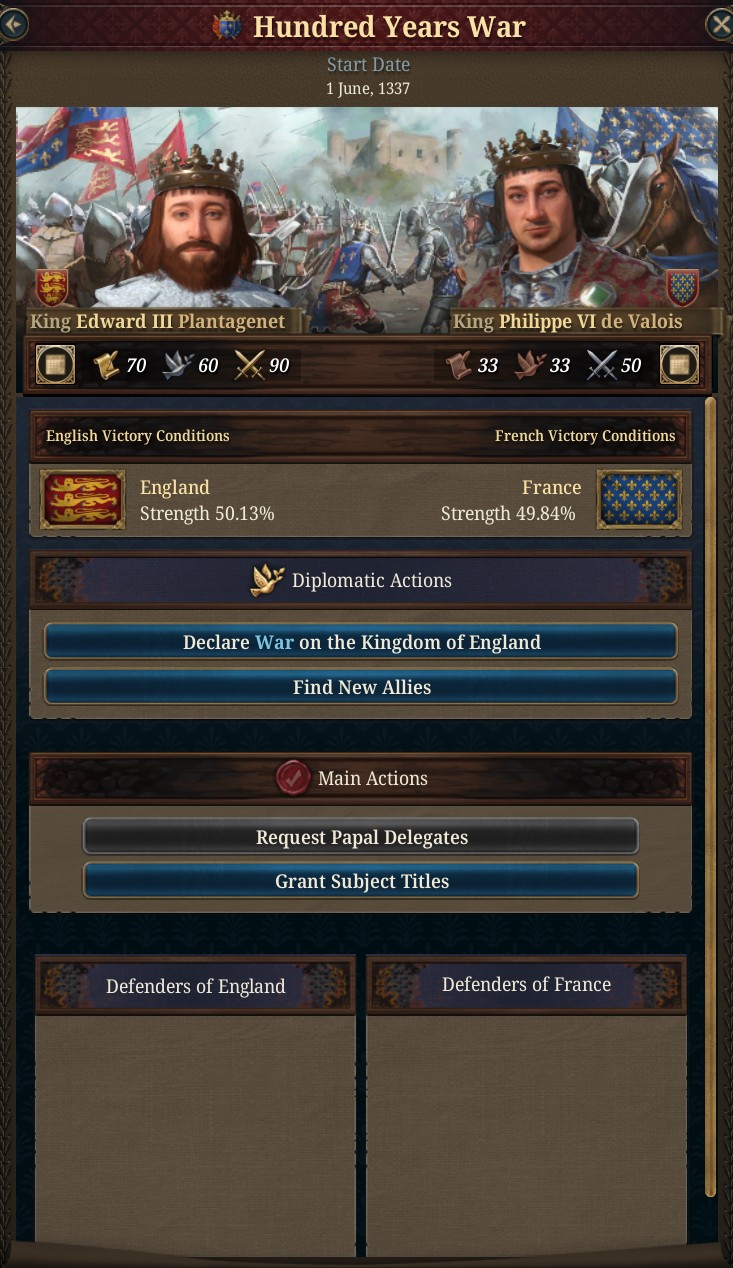
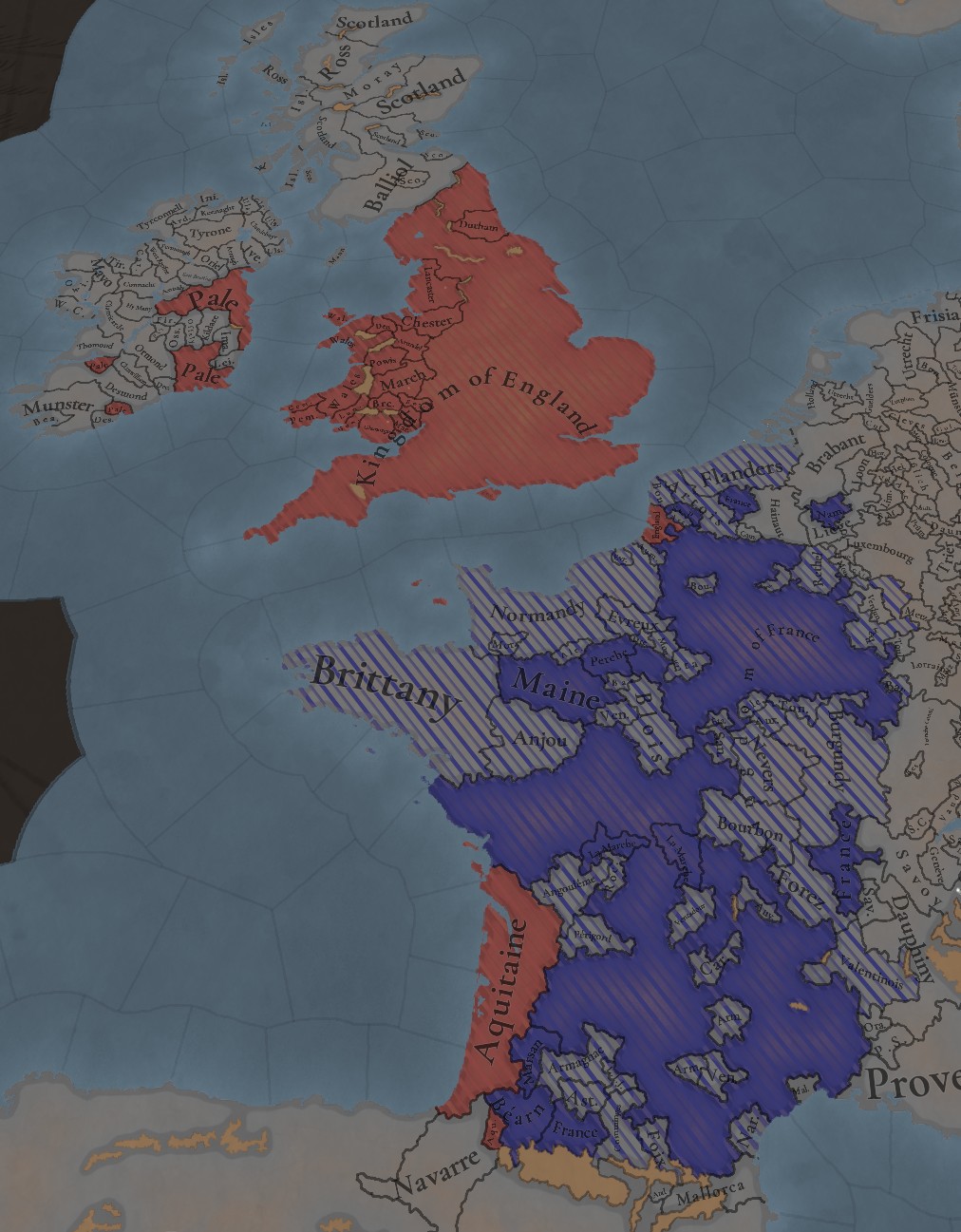
The starting situation of the Hundred Years’ War, with the French and English subjects. You can notice the striped vassals, which mean that these are disloyal subjects.
As you see, each contender has its own set of objectives:
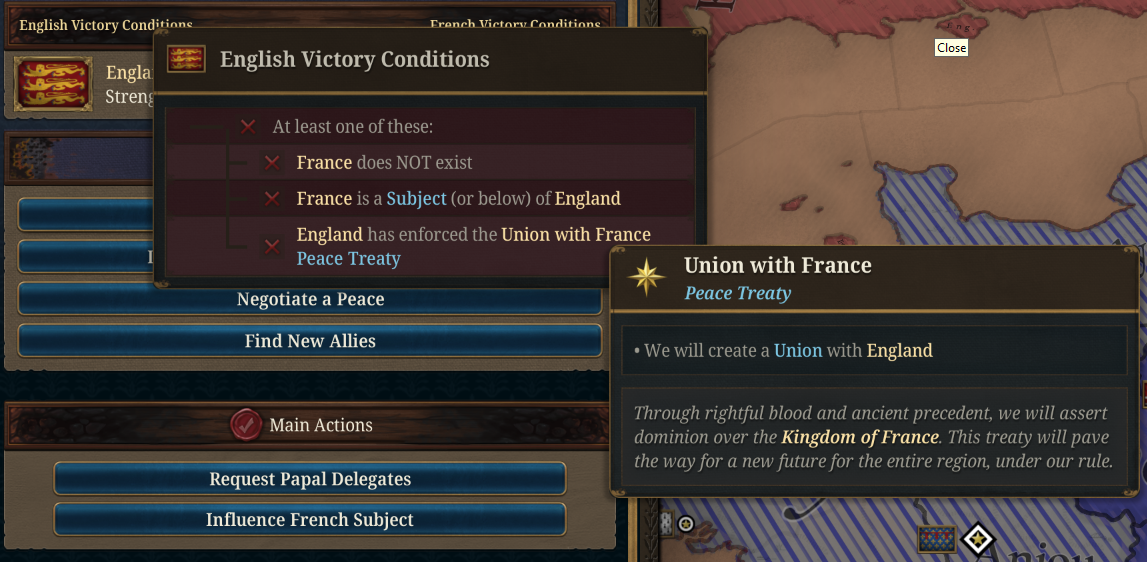
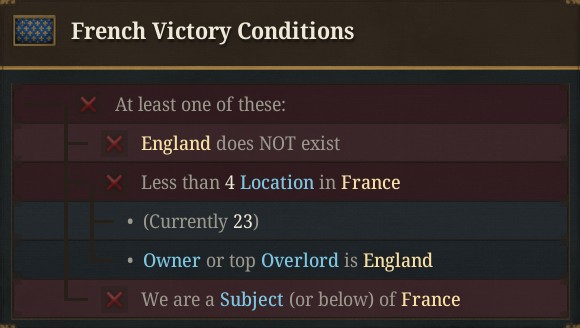
You can also see that there’s a Strength comparison:
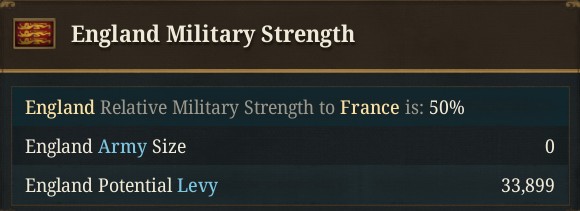
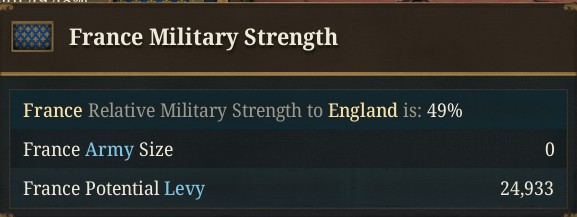
Note: Numbers are a matter of balance, so please consider them WIP.
With the situation and claims in place, it’s just a matter of time before one of the sides declares war on the other:
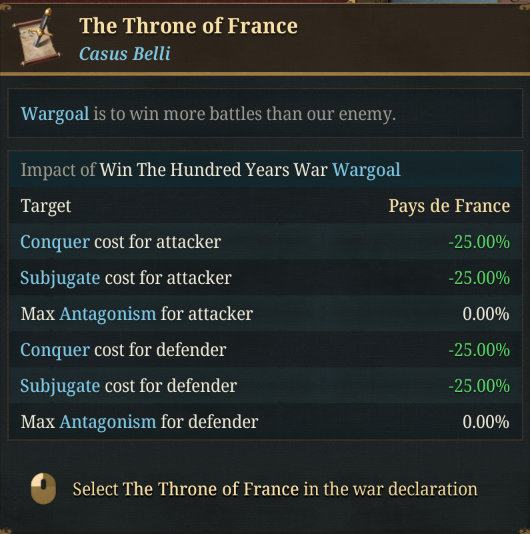
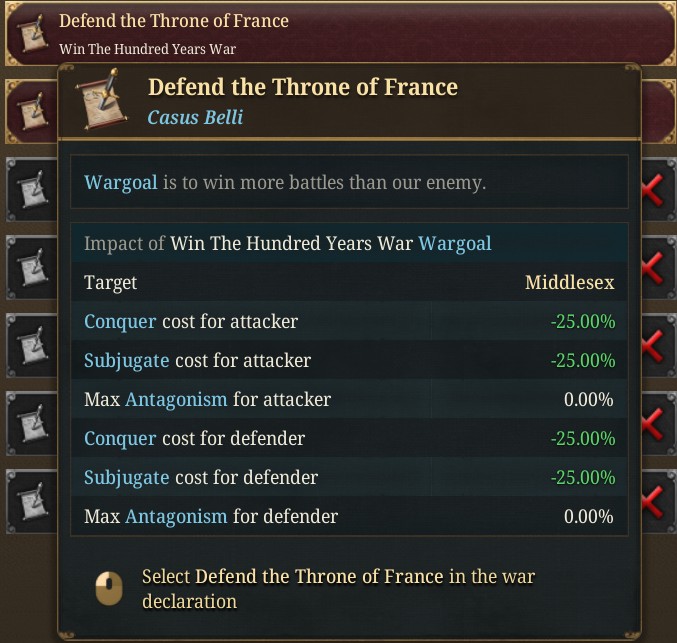
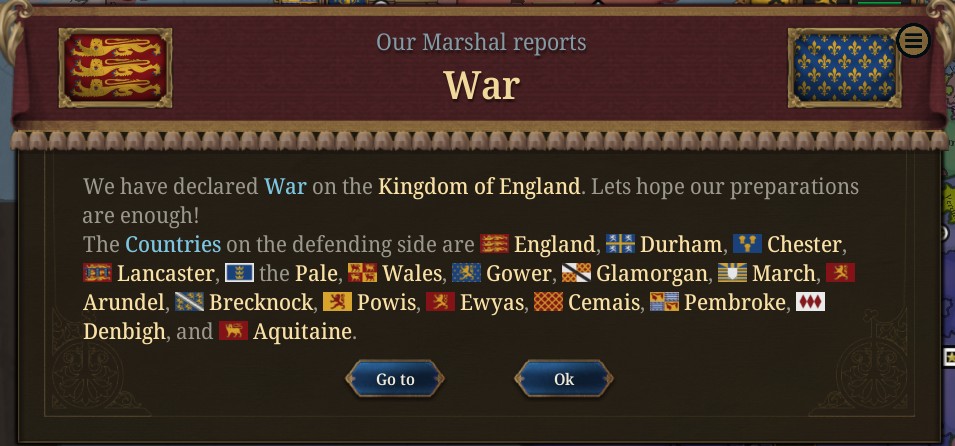
Something interesting is that each war is considered a ‘phase’ of the situation, so until it ends, any war between France and England will be considered ‘the 1st Phase’, ‘the 2nd Phase’, and so on:

The Situation panel will also refresh when the war starts, so you can quickly check there everything related to it:
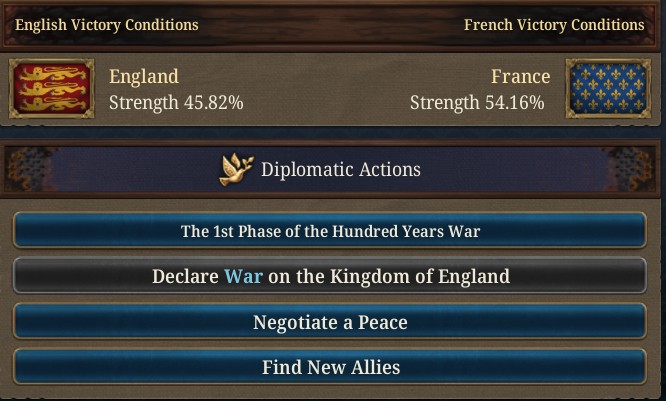
Let’s talk now about the actions. There’s a common action that any of the sides can do, if the war has lasted for longer than 4 years, that requests the Pope to enforce a white peace among the contenders:
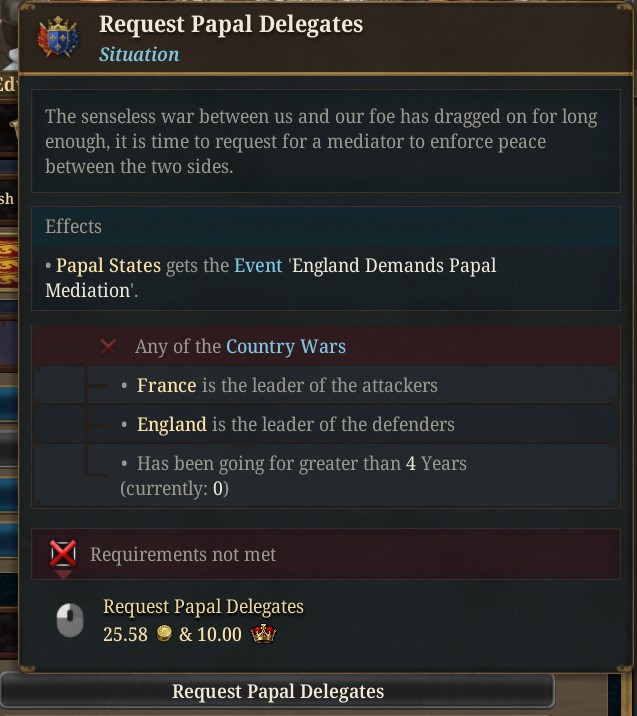
The most important are those related to the French subjects; the objective for France will be to rein them in and have them contribute to the war effort in the conflict phases, while for England, it will be about convincing them to abandon the French king in the peace phases:
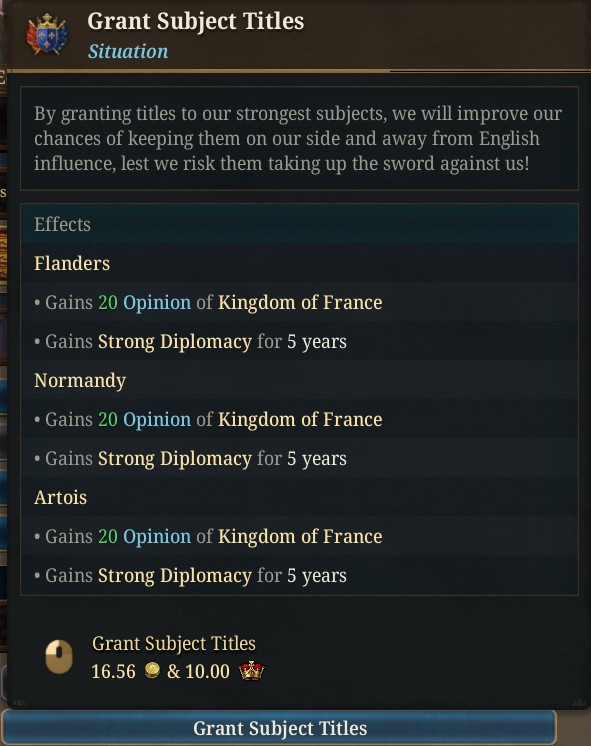
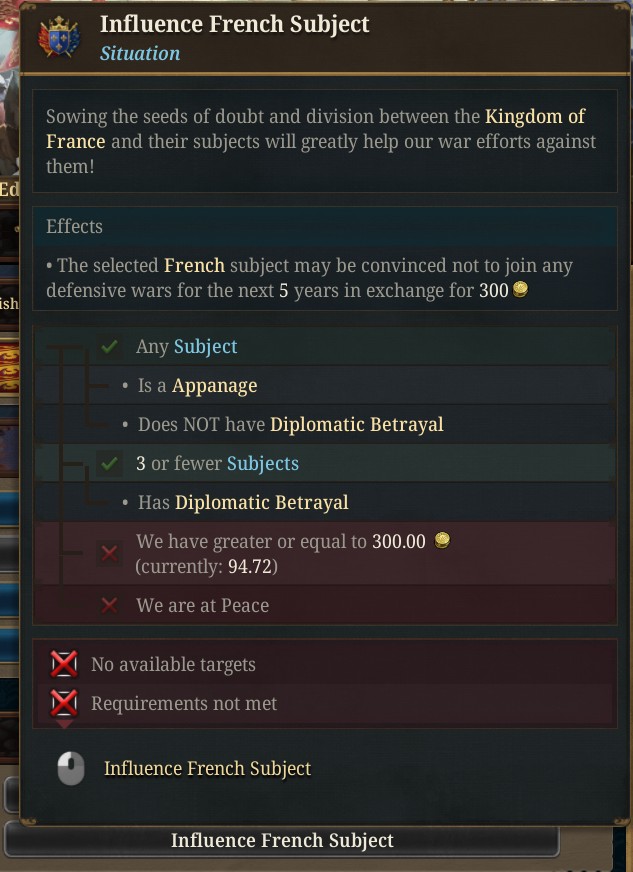
The French subjects have their own gameplay and actions, related to their relationship with the French sovereign, and if they stay loyal to them, or not:

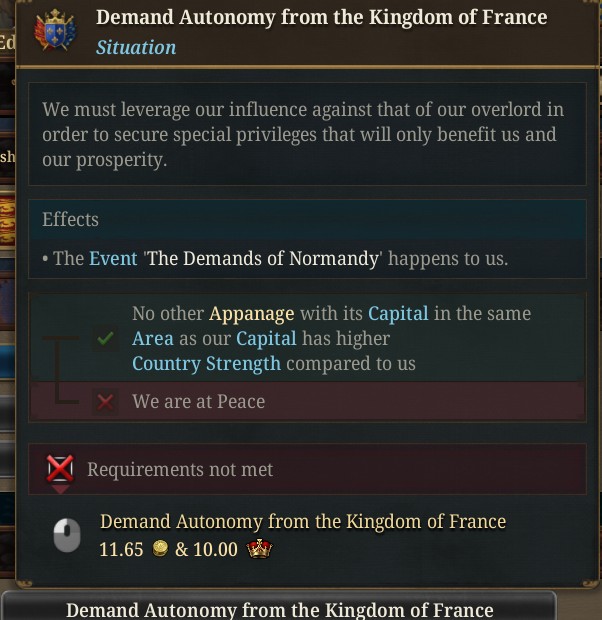
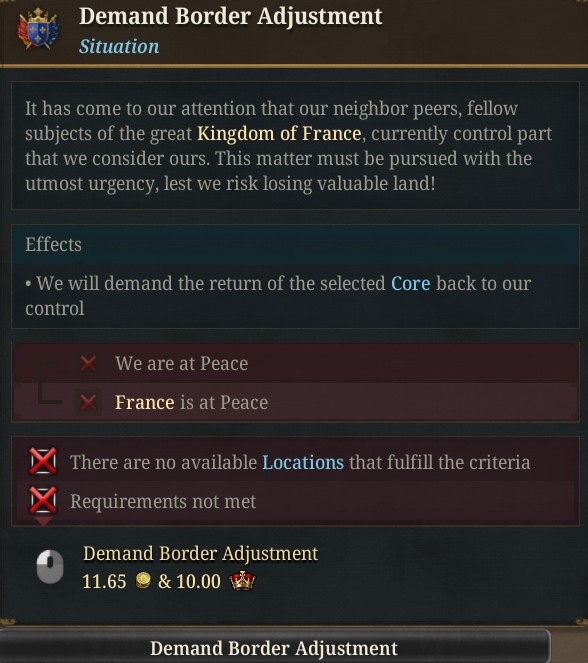
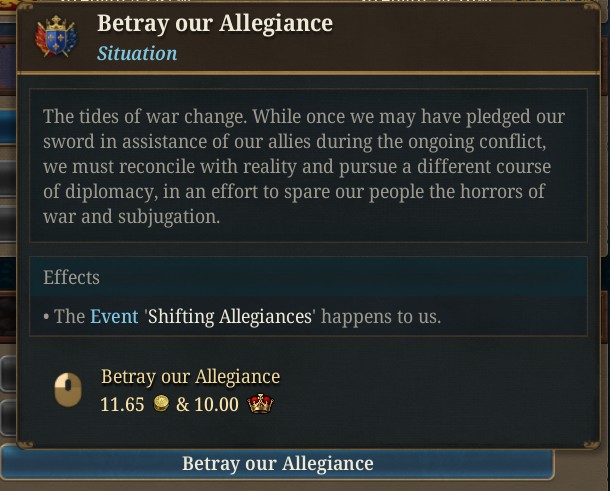
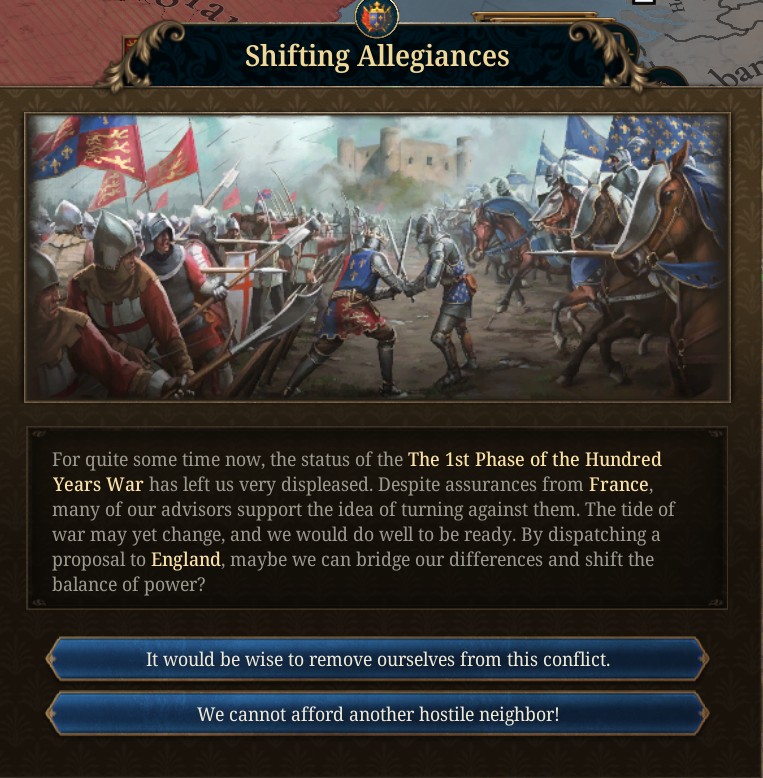
So, at the end of the day, one of the contenders will probably be strong enough to defeat the other. In the case of France, it’s straightforward: No more independent English presence in the continent. In the case of England, beside pure conquest, the ‘Claim of Throne of France’ peace goal requests:
And that’s it on the mechanical part of the situation; but there are also a bunch of events, both random and historical, that are dependent on it:
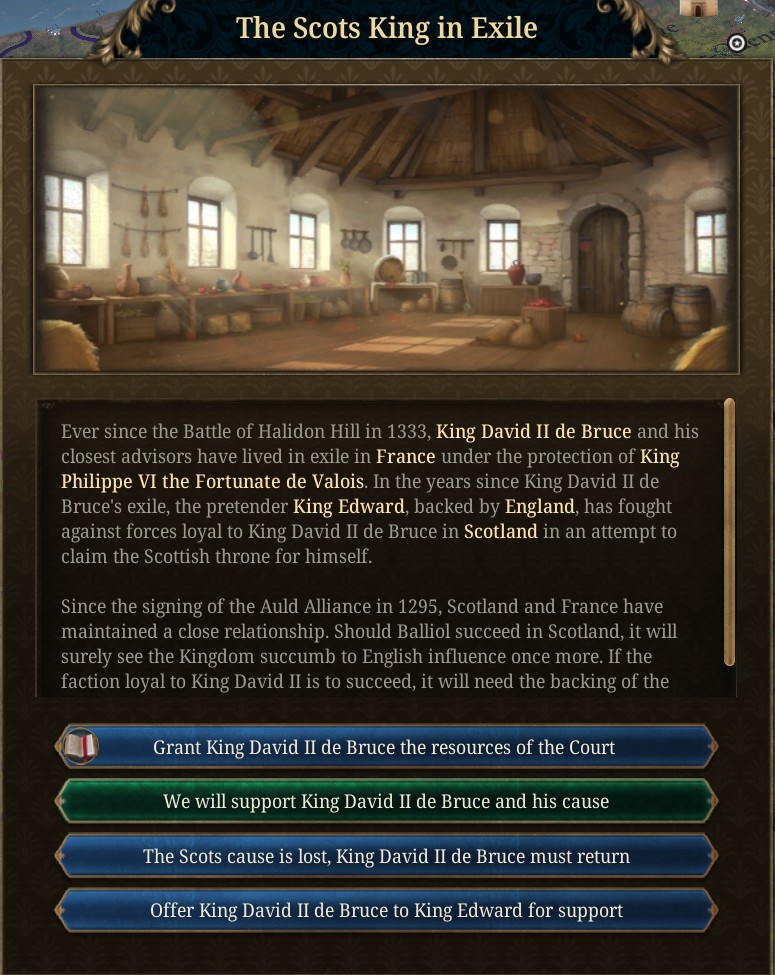


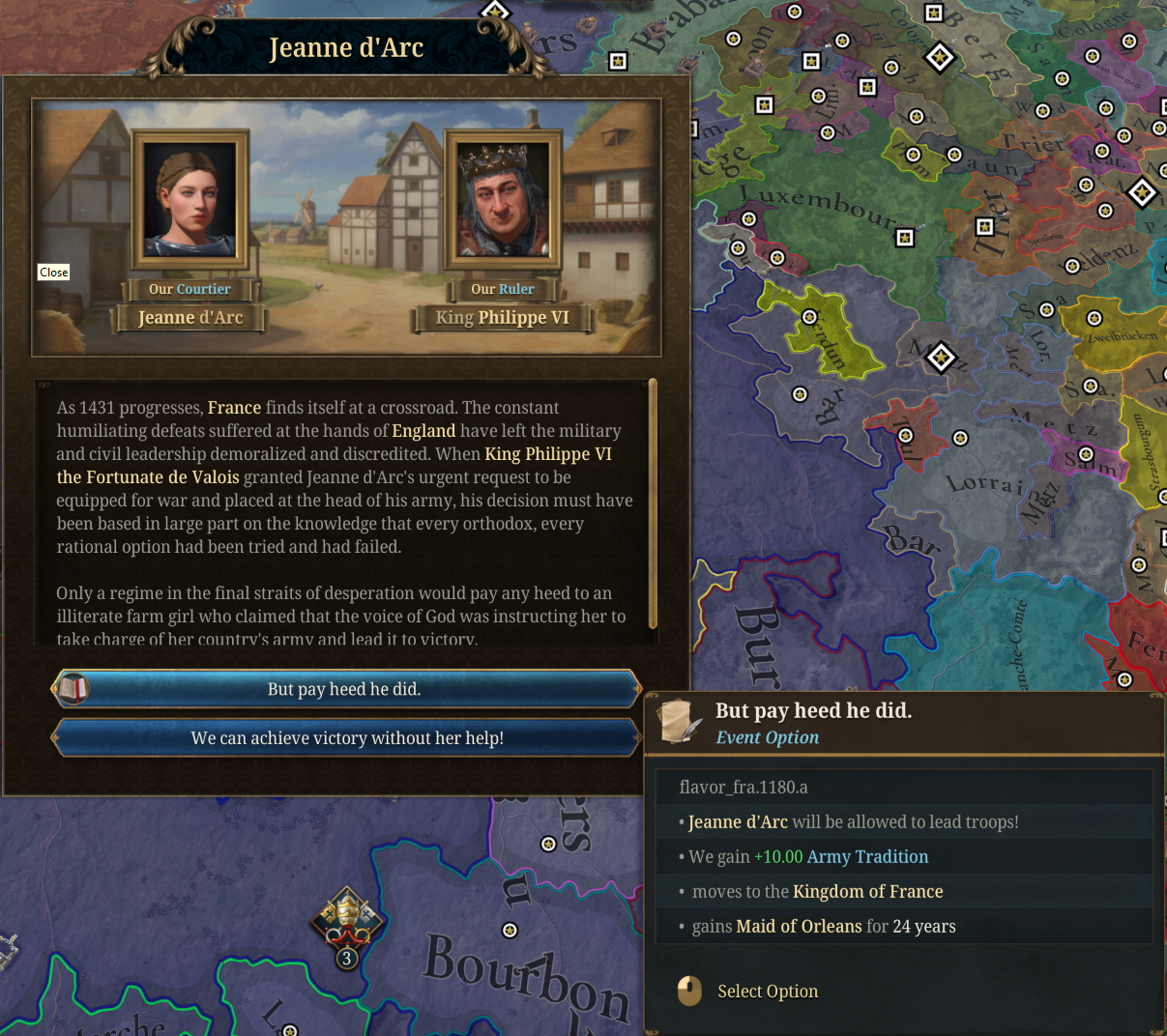
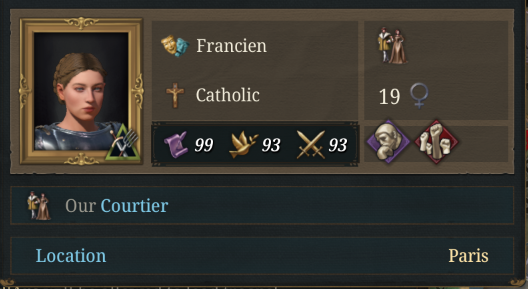
And that’s all for today! We will come back on Friday, as we will talk in Tinto Flavour about France!
And also remember, you can wishlist Europa Universalis V now! Cheers!
Today, we will talk about another very impactful early-game situation: the Hundred Years’ War!
Historically, the war started when, in May 1337, Philip VI confiscated the Duchy of Aquitaine from Edward III of England, for the reason of breaching his obligations as a vassal, which was responded to by Edward III claiming the throne of France by the rights of his mother, Isabella of France - the situation was way more complicated than this, so let’s leave the historical events here.
In our game, a couple of months after the start of the game (so, in June 1337), this event will trigger to France:



While this is the English point of view:



If the historical options are followed (which is set to always happen to AI countries), this will happen:

And it will also trigger the situation:



The starting situation of the Hundred Years’ War, with the French and English subjects. You can notice the striped vassals, which mean that these are disloyal subjects.
As you see, each contender has its own set of objectives:


You can also see that there’s a Strength comparison:


Note: Numbers are a matter of balance, so please consider them WIP.
With the situation and claims in place, it’s just a matter of time before one of the sides declares war on the other:



Something interesting is that each war is considered a ‘phase’ of the situation, so until it ends, any war between France and England will be considered ‘the 1st Phase’, ‘the 2nd Phase’, and so on:

The Situation panel will also refresh when the war starts, so you can quickly check there everything related to it:

Let’s talk now about the actions. There’s a common action that any of the sides can do, if the war has lasted for longer than 4 years, that requests the Pope to enforce a white peace among the contenders:

The most important are those related to the French subjects; the objective for France will be to rein them in and have them contribute to the war effort in the conflict phases, while for England, it will be about convincing them to abandon the French king in the peace phases:


The French subjects have their own gameplay and actions, related to their relationship with the French sovereign, and if they stay loyal to them, or not:





So, at the end of the day, one of the contenders will probably be strong enough to defeat the other. In the case of France, it’s straightforward: No more independent English presence in the continent. In the case of England, beside pure conquest, the ‘Claim of Throne of France’ peace goal requests:
- England (or their subjects) must control more than 15% of the ownable locations in the French Region
- England must control the capital of France
- A base cost
- A fluctuating cost based entirely on the relative strength between the two countries. So, a stronger England would inevitably make this peace treaty option somewhat cheaper.
And that’s it on the mechanical part of the situation; but there are also a bunch of events, both random and historical, that are dependent on it:





And that’s all for today! We will come back on Friday, as we will talk in Tinto Flavour about France!
And also remember, you can wishlist Europa Universalis V now! Cheers!



